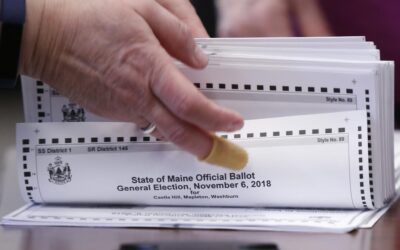In The Atlantic, Nick Troiano looks at eliminating partisan primaries and using ranked-choice voting to help make elections—especially congressional ones—more democratic and less polarized. From the article:
Under the reform, rather than both parties holding separate primary elections, all candidates will instead compete in a single, nonpartisan primary in which all voters can participate and select their preferred candidate. Then the top four finishers will advance to the general election, where voters will have the option to rank them. Whoever earns a majority of votes wins.
What should be considered is whether primaries are required at all. Most races only include a handful of competitors even before the primary and very few voters participate in the primary process. The major advantage of instant-runoff (ranked-choice) voting is that it can eliminate costly and unnecessary primaries. As Troiano notes, the moderating effect of ranked-choice voting is speculative. But eliminating primaries altogether should be seen as a victory for outsider candidates who lack party support during primaries and for efficiency.
To avoid a logjam on the ballot in those rare situations, perhaps primaries could be used when there are 12+ candidates competing. They could be, as Troiano suggests, nonpartisan, but it would make sense to let more than four candidates advance.




